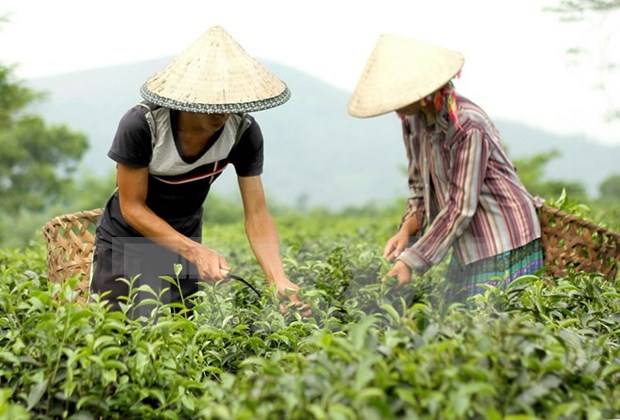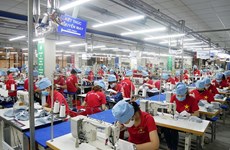More investment in safe agricultural production needed
Models for safe food production have been established and expanded. But safe agro-products have not yet met domestic consumption and export demands.
 Farmers harvest tea in My Bang commune of Yen Son district, Tuyen Quang province (Photo:VNA)
Farmers harvest tea in My Bang commune of Yen Son district, Tuyen Quang province (Photo:VNA) Hanoi (VNA) - Models for safe food production have been established and expanded. But safe agro-products have not yet met domestic consumption and export demands.
Vietnam News Agency talked with Tran Cong Thang, deputy director of the Institute for Agriculture and Rural Development Policy and Strategy, about these issues.
Q: Producing safe food is a policy of the country’s agricultural sector, which aims to develop effective and sustainable agriculture. How well has this policy been implemented, so far?
Developing sustainable and effective production is not only good for the agriculture sector but also for all the economic sectors of the country.
Over the last few years, the Ministry of Agriculture and Rural Development has implemented several policies towards developing a safe food production industry. Many collectives and households have started to shift to safe food production meeting VietGap standards. But, the percentage of households taking on VietGap production standards remains low.
The ministry recently cooperated with localities to set up safe agro-product chains to attract businesses to take part in providing safe food.
The ministry has also increased oversight of banned substances in animal food. So far, nearly 300,000 households raising animals or trading in animal food have committed to not using banned substances to feed animals.
With World Bank assistance, the ministry implemented a project to increase productivity, quality and food safety, as well as to reduce environmental pollution.
The ministry has also implemented measures to help farmers expand their export markets to Japan, the EU and Australia, which all have high food safety standards.
Q: The safe food policy has clearly been effective. But, so far, safe agricultural production remains modest and has yet to satisfy the demands of domestic consumption and export. Why is this so?
Households and businesses are producing and marketing safe food for the domestic and export markets. But the production of safe agro-products has not yet met domestic and export demands. There are many reasons for this.
First, the production scale remains small. Many households lack food safety knowledge or profit is their top priority, so they still use banned toxic substances on vegetables and in animal feed.
Second, food processing and preservation has also faced many difficulties. Many existing products violate food safety and hygiene rules.
Vegetables and meat products are also still being sold in traditional markets without brands and packaging. This makes it difficult to trace the origins and producers of substandard products.
Customers remain understandably doubtful about the quality and safety of many foods. Therefore, most buyers are not willing to pay higher prices for questionable products of unknown provenance.
In addition, State management work has exposed many shortcomings, including lack of monitoring and inadequate supervising of production units. All of this has contributed to continuing consumer distrust.
Q: Due to an inadequate supply of safe food, many businesses cheated consumers by buying fake ’safe food’ certifications. What will the ministry do to stop this?
The ministry will step up monitoring and supervising businesses granted certificates to produce and market safe foods.
The agriculture sector will also improve marketing assistance for farmers’ products, provide distribution channels and help farmers brand their products.
Q: Investing in agricultural production is high risk, yet production of safe food requires large amounts of capital. What attracts investors to this sector? What measures are needed to lure more investment?
Agricultural production has always faced high risks. But in recent years, many foreign companies and large Vietnamese companies invested more in this sector because they saw huge potential in the safe food market.
Government, regional and local policies attract businesses to take part in safe agro-production.
Land use remains a core issue for businesses, affecting their ability to create large-scale production areas. Policies are needed to incentivize businesses to cooperate with farmers to produce safe products.-VNA













